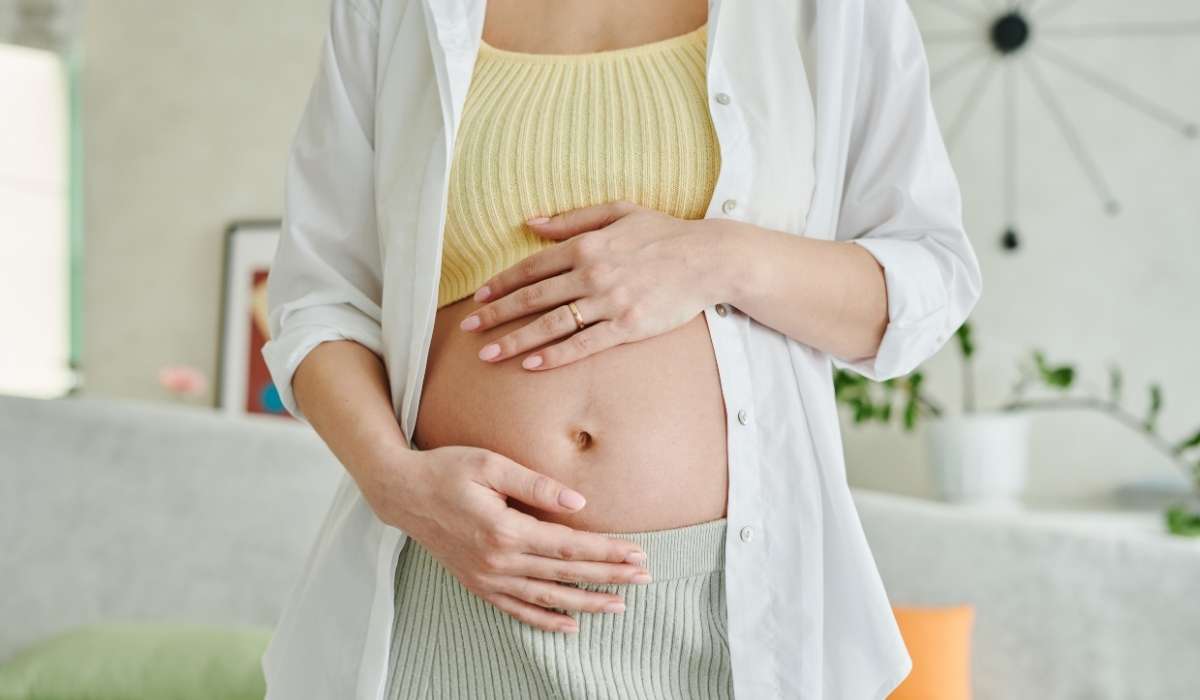Advertisements
The wait for a baby begins long before birth. For many women, the first signs of pregnancy appear subtly, almost imperceptibly, in the first few days after conception. Recognizing these early symptoms can be crucial for those trying to conceive or for those who aren't expecting it.
The Female Body in Transformation
When the egg is fertilized and begins to develop, the female body begins a series of preparatory changes for the next nine months. These hormonal and physical changes produce signs that, although they vary from woman to woman, have recognizable patterns that can indicate the beginning of a pregnancy.
Advertisements
Delayed Menstruation: The Most Known Sign
A late period is undoubtedly the symptom most associated with pregnancy. For women with regular cycles, a missed period on the expected date is often the first warning sign. However, it's important to remember that a late period can occur for a variety of reasons, such as stress, hormonal changes, sudden weight gain, or intense exercise.
If you have a regular menstrual cycle and notice a delay of more than a week, it's recommended to take a home pregnancy test. These tests detect the hormone human chorionic gonadotropin (hCG), produced by the placenta after a fertilized egg implants in the uterus.
Nausea and Morning Sickness: More Common Than You Think
Contrary to the popular term "morning sickness," pregnancy-related nausea can occur at any time of day. It usually appears around the sixth week after conception, but some women may experience it as early as the first few weeks.
Advertisements
The intensity of morning sickness varies significantly. While some pregnant women experience only mild discomfort, others experience frequent vomiting that can lead to dehydration. Nausea is related to hormonal changes, especially increased levels of hCG and estrogen.
Tips for relieving nausea include:
- Eat small amounts several times a day
- Avoid fasting for too long
- Prefer drier foods when you wake up, like toast
- Maintain good hydration, but avoid drinking liquids during meals.
Breast Tenderness: An Early Sign
Breast changes can be one of the first noticeable symptoms of pregnancy. Many women report tenderness, swelling, and pain, similar to premenstrual sensations, but more intense.
It's also common to notice darkening of the areola and more visible veins in the breasts. These changes occur due to hormonal changes that prepare the breasts for breastfeeding.
Extreme Fatigue: When the Body Asks for Rest
Intense fatigue in the first weeks of pregnancy surprises many women. This fatigue isn't usually alleviated by a good night's sleep alone and can persist throughout the first trimester.
The reason for this exhaustion is the significant increase in progesterone levels, in addition to the extra work the body does to form the placenta and adapt to the new needs of pregnancy. Respecting this signal and allowing yourself more rest is essential during this phase.
Mood Swings: Emotional Roller Coaster
Are you more sensitive, crying easily, or getting irritated for reasons you wouldn't normally experience? The hormonal changes of early pregnancy can cause significant mood swings.
These emotional changes are perfectly normal and tend to be more intense during the first trimester. Sharing your feelings with your partner, family, or friends can help you better manage these fluctuations.
Increased Urinary Frequency: Constant Visits to the Bathroom
If you notice that you're going to the bathroom much more frequently than usual, without increasing your fluid intake, this could be a symptom of pregnancy. The growing uterus presses on the bladder, reducing its capacity to store urine.
Additionally, increased blood flow to the kidneys causes them to process more fluid, resulting in increased urine production. This symptom usually appears around the sixth week of pregnancy.
Mild Cramps: Confusing with Menstrual Period
Many women experience mild cramping in early pregnancy, very similar to menstrual cramps. This sensation can occur when the embryo implants in the uterine lining or due to the expansion of the uterus in the first few weeks.
The main difference is that these cramps are not accompanied by menstrual flow. If the pain is intense or accompanied by bleeding, it's important to see a doctor immediately.
Implantation Spotting or Bleeding: A Subtle Sign
Approximately one in four women experience light bleeding in early pregnancy, known as implantation bleeding. It occurs when the fertilized egg attaches itself to the lining of the uterus, usually between 6 and 12 days after conception.
This bleeding is typically lighter than menstrual bleeding, lasting only a few hours or a maximum of two days, and is pinkish or light brown in color. Because it occurs close to the expected period, many women mistake it for a shorter, lighter menstrual period.
Changes in Taste and Smell: Amplified Senses
"I never liked coffee, but now just the smell of it makes me sick." Phrases like this are common among pregnant women. Hypersensitivity to odors and changes in food preferences are common symptoms in early pregnancy.
Some women develop an aversion to certain foods they previously enjoyed, while others experience intense cravings for specific flavors. These changes are related to hormonal shifts and tend to stabilize after the first trimester.
Constipation and Digestive Changes: The Slower Intestine
Rising progesterone levels during pregnancy relax the muscles of the digestive system, slowing bowel movements. This can lead to constipation even in the first weeks of pregnancy.
In addition to constipation, many women report feelings of bloating, gas, and digestive discomfort. A high-fiber diet, adequate hydration, and moderate physical activity can help alleviate these symptoms.
Dizziness and Low Blood Pressure: When the World Turns
Episodes of dizziness and vertigo are common in early pregnancy due to dilated blood vessels, which causes a drop in blood pressure. Additionally, low blood sugar (hypoglycemia) can also contribute to this sensation.
If you feel dizzy, sit or lie down immediately to avoid falling. Eating regularly and avoiding prolonged standing can help prevent these episodes.
Elevated Basal Temperature: A Sign for Monitors
Women who monitor their basal body temperature (resting body temperature) to identify their fertile window may notice that, after ovulation, their temperature remains elevated for more than 18 days. This could be an indication of pregnancy.
Typically, the temperature drops again just before menstruation. If it remains high and menstruation doesn't arrive, conception may have occurred.
When to Take a Pregnancy Test?
For greater accuracy, the pregnancy test should be taken after a missed period. Home tests detect the hCG hormone in urine, which begins to be produced after embryo implantation. This hormone doubles in concentration approximately every 48 hours during early pregnancy.
If the test is performed too early, there is a chance of a false negative result. If the result is negative and symptoms persist, repeat the test after a few days or consult a doctor for a blood test, which is more sensitive.
When to See a Doctor?
If you suspect a pregnancy is confirmed by a home test, it's recommended to schedule an appointment with a gynecologist or obstetrician to begin prenatal care. Medical monitoring from the beginning of pregnancy is essential for the healthy development of the baby.
Some warning signs that require immediate medical attention include:
- Heavy vaginal bleeding
- Severe abdominal pain
- Extreme dizziness or fainting
- Persistent vomiting that prevents fluid and food retention
Every Woman, A Unique Experience
It's important to note that pregnancy symptoms vary widely among women. Some experience almost all of the signs described, while others may experience few or no symptoms in the first few weeks.
Factors such as physical constitution, hormone levels, and even genetics influence how each individual responds to pregnancy. There is no universal "normal" standard—each pregnancy is unique.
Conclusion: Pay Attention to Your Body's Signals
Early pregnancy symptoms can be subtle and easily confused with other conditions, such as premenstrual syndrome or stress. Therefore, being aware of changes in your body and recognizing unusual patterns is crucial to identifying a possible pregnancy early on.
If you are trying to get pregnant or suspect you may be pregnant, pay close attention to your body, keep a record of your symptoms, and if you suspect you are pregnant, take a test and seek medical advice to begin prenatal care as soon as possible.
Motherhood is a transformative journey that begins long before your baby is born. Recognizing the early signs of this journey is just the first step of many you'll take along this special path.







